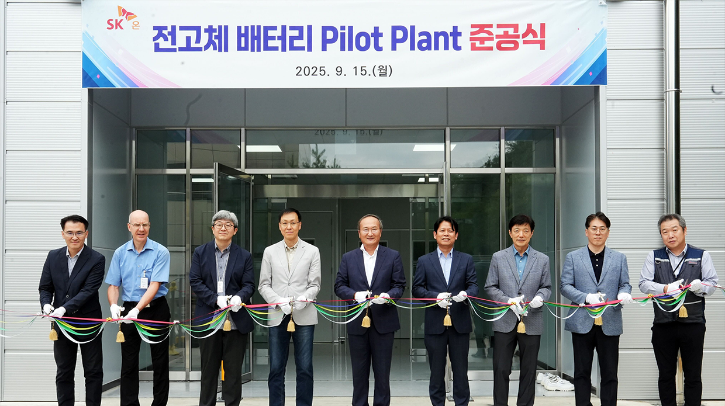SK On has announced the completion of its pilot plant for all-solid-state batteries (ASSBs) in South Korea, supporting its goal to commercialize next-generation batteries by 2029.
SK On, part of the SK Group, held the completion ceremony of its ASSB pilot plant at the SK On Institute of Future Technology in Daejeon on September 15. SK On CEO and president Seok-hee Lee said, “This pilot plant will serve as a cornerstone for SK to leap forward as a strong and resilient company in addressing any changes in business environment. We aim to remain at the forefront of commercializing all-solid-state batteries to accelerate electrification.”
The company has said that its pilot plant will be primarily used to develop sulfide-based ASSBs, with some lines dedicated to lithium-metal batteries. It aims to commercialize ASSBs with an energy density of 800Wh/liter, with a long-term goal of reaching 1,000Wh/liter.
The pilot plant uses its own warm isostatic press (WIP) technology for ASSB development, making it the first in South Korea to apply such solutions. The WIP technology is a next-generation pressing process that applies uniform pressure to electrodes at elevated temperatures (25-100°C) to improve density and performance. Though this solution minimizes battery heat generation and extends lifespan, it requires a cell-sealing process and is difficult to implement in a continuous automated production line, which results in lower productivity.
To retain the advantages of the WIP process while addressing its shortcomings for better productivity, the company leveraged its cell design and normal pressing methods by optimizing the mixing of battery materials – active materials and conductive additives, as well as the electrode composition – to reduce internal resistance within the electrodes. Reduced resistance helps minimize heat generation.
SK On said it has also improved the bonding between electrodes and solid electrolytes, and optimized pressing conditions to reduce interfacial resistance. Lower interfacial resistance enables smoother ion transportation, more stable charging and discharging, and longer cycle life.
In related news, Rimac unveils next-gen solid-state batteries, hybrid platforms and high-performance e-axles


